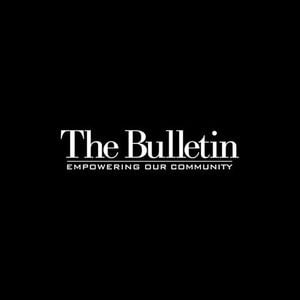Detroit and North Carolina are facing another respiratory virus season, and the lurking threat of respiratory syncytial virus (RSV) looms significantly, especially for older adults and infants. This year, health authorities are urging those at risk to get vaccinated against RSV to curtail its impact, particularly among older adults who are most susceptible to severe illness.
RSV is commonly mistaken for minor cold-like symptoms, but for individuals aged 60 and older, it can lead to serious complications such as pneumonia or hospitalization. Recent reports revealed alarming trends: Michigan has experienced its highest rate of RSV-associated hospitalization among adults aged 65 and older over the past five seasons. Similarly, North Carolina is witnessing rising cases, particularly affecting the growing elderly population, which now constitutes 18.3% of the Raleigh-Durham demographic.
Each year, between 100,000 to 160,000 older Americans find themselves hospitalized due to RSV, according to the Centers for Disease Control and Prevention (CDC). This has prompted the CDC to recommend a single dose of RSV vaccine for adults aged 60 and older, especially those with chronic conditions like asthma, COPD, heart disease, or diabetes.
Health experts have pointed out the importance of taking precautionary measures. Dr. Amanda B. Payne from the CDC stresses the need for broader vaccine uptake, advocating vaccination even among those who have received influenza and COVID-19 shots. She highlights, "For adults ages 60 and older, RSV vaccines reduced the likelihood of RSV-associated hospitalizations by 80%," calling for all adults 75 and older to receive the vaccine.
The push for vaccination is not just limited to older adults. A notable development is the FDA's acceptance of the biologics license application for clesrovimab, aimed at providing infants with protection against RSV during their first RSV season. This monoclonal antibody is set to become the first and only single dose immunization indicated for infants irrespective of their weight, marking significant progress against RSV.
RSV poses unique risks to infants, especially those less than six months old. According to the CDC, symptoms like irritability, decreased activity, and reduced feeding can manifest, and statistically, 2 to 3 out of every 100 infants are hospitalized with RSV annually. Given the global health burden, where RSV contributes to roughly 101,000 deaths among children under five each year, the development of effective vaccines is imperative.
Clesrovimab is backed by promising trial data, showing over 90ïfectiveness against RSV-associated lower respiratory infection hospitalizations. Results from the recently presented CLEVER trial indicate substantial efficacy, prompting anticipation for its availability by the 2025-2026 RSV season. Paula Annunziato of Merck stated, "This regulatory milestone... marks important progress toward our goal of having clesrovimab available..."
Meanwhile, as RSV season approaches, residents across the counties are encouraged to stay informed about RSV prevention strategies, including vaccination. Practicing hygiene measures, like washing hands frequently, cleaning surfaces, avoiding close contact with the sick, and following local health guidelines are also emphasized to help mitigate the spread of RSV.
To summarize, RSV remains a public health challenge, particularly for older adults and infants. Hospitalizations continue to stress healthcare systems across the U.S., but with proactive vaccination campaigns and the introduction of innovative therapies like clesrovimab, there is hope for reducing the impact of RSV significantly. Adults and parents of young children are urged to check their vaccination status and seek education about RSV and its associated risks.
This winter season, consideration for the RSV vaccine could mean the difference between health and hospitalization for highly vulnerable populations.
With winter around the corner, it’s clear: Knowledge, preparedness, and action are key to weathering the RSV season.
Correction
(12/21/2024, 05:40 AM CST): We have clarified that clesrovimab was shown to be over 90 percent effective against RSV-associated lower respiratory infection hospitalizations and severe respiratory infections, rather than RSV-associated hospitalizations in general. Read
more and see other corrections.



